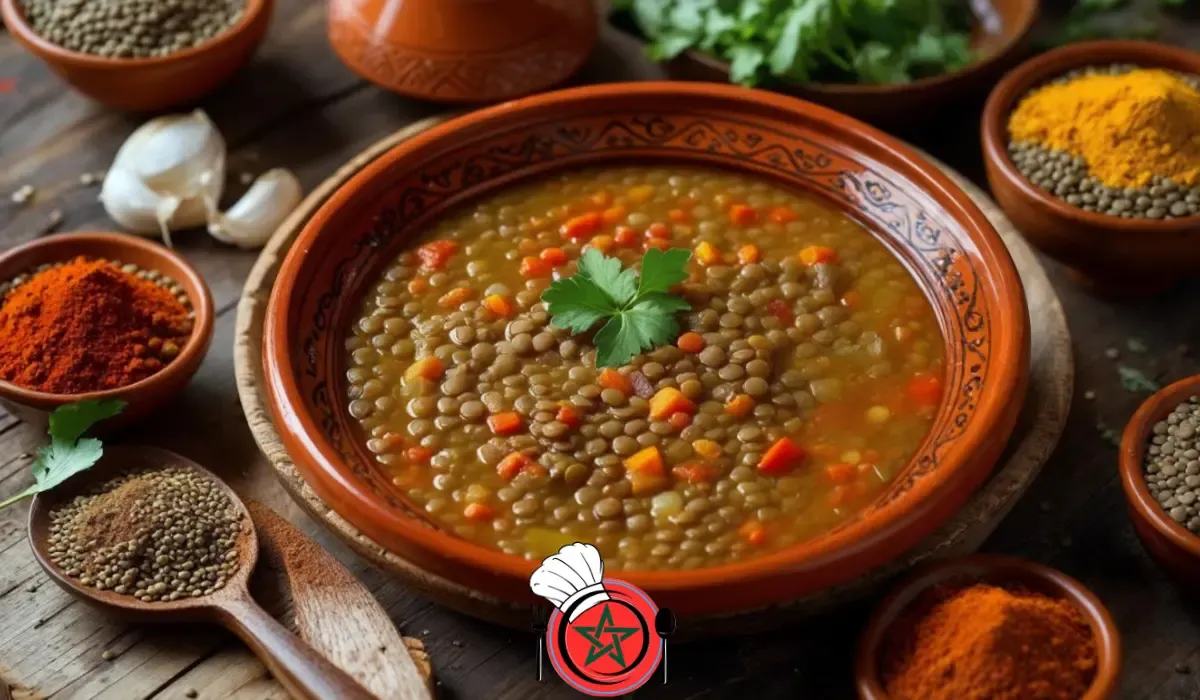Healthy Soups in Moroccan Cuisine: The Magic of Traditional "Chorbas"
Moroccan cuisine is celebrated not only for its rich flavors and spices, but also for its healthy approach to traditional cooking. One of the best examples is found in the variety of traditional Moroccan soups, known locally as "chorba" or "shorba". These soups are hearty, nutritious, and deeply rooted in Moroccan culture, often enjoyed as comfort food or as a healthy meal starter.

The Secret of Moroccan Healthy Soups
Moroccan soups are crafted from simple, natural ingredients—legumes, vegetables, olive oil, aromatic herbs, and warming spices. They deliver not only flavor, but also essential vitamins, proteins, and fibers that nourish the body and support a healthy lifestyle.
"A bowl of Moroccan soup is more than just food—it's a warm embrace from tradition, full of health and comfort."
– Traditional Moroccan Saying
Popular Healthy Soups in Morocco
- Bissara (Bissara): A creamy fava bean soup, seasoned with cumin, olive oil, and fresh herbs. It's a staple for breakfast or dinner, especially in winter.
- Harira: Morocco's famous soup for Ramadan, made with tomatoes, lentils, chickpeas, celery, and herbs—rich in protein and fiber.
- Chorba: A light yet nourishing vegetable or chicken soup, infused with parsley, coriander, and a hint of turmeric.
- Azgif (Azkif): A Berber barley soup with seasonal vegetables and sometimes pieces of lamb or chicken, providing slow-release energy.
- Soba (Soba/Souba): Not to be confused with the Japanese noodle! In Morocco, "Souba" is a light soup made with fresh greens, potatoes, and sometimes rice or vermicelli.
- Vegetable Lentil Soup: A wholesome blend of lentils, carrots, tomatoes, and Moroccan spices for a filling, plant-based meal.
Why Are Moroccan Soups So Healthy?
- Plant-based goodness: Most of these soups are naturally vegetarian or vegan.
- Rich in fiber and protein: Thanks to legumes, beans, and whole grains.
- Low in fat: Prepared mainly with olive oil and little or no animal fat.
- Loaded with vitamins: From seasonal vegetables and fresh herbs.
- No processed ingredients: Just natural, wholesome foods from the land.
Tips for Making Authentic Moroccan Soups
- Use dried legumes and soak them overnight for better texture and nutrition.
- Enhance flavor with spices like cumin, turmeric, ginger, and black pepper.
- Finish with a drizzle of extra-virgin olive oil and fresh chopped herbs.
- Serve with whole-wheat bread for a complete and balanced meal.
Frequently Asked Questions
Are Moroccan soups suitable for vegetarians and vegans?
Yes! Many traditional soups like Bissara and vegetable chorbas are entirely plant-based.
Which Moroccan soup is best for Ramadan?
Harira is the iconic soup for Ramadan, providing energy and nutrients after a day of fasting.
Can I freeze Moroccan soups?
Absolutely. Most Moroccan soups freeze very well and can be reheated for a quick, healthy meal.
Is it necessary to use a traditional clay pot?
No. While clay pots add an authentic touch, you can prepare these soups in any regular pot.
Explore the world of Moroccan soups and discover how simple ingredients can create meals that are both healthy and delicious. Your body—and your tastebuds—will thank you!

.webp)
.webp)










%20(1).webp)
.webp)


.webp)

